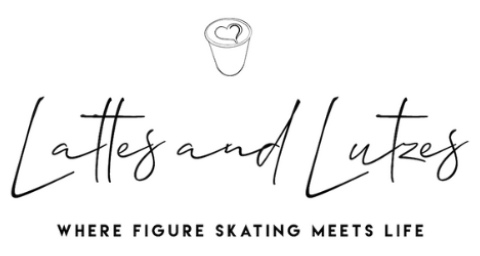
As competition season approaches, I’ve been reflecting on how much I’ve learned over the last two years as an adult figure skater. It took me a couple of seasons to truly understand how to prepare in a way that leaves me feeling confident, composed, and ready to give my best performance. Here’s what I’ve discovered about strategizing for competition:
Training for the Unexpected
Competitions rarely go exactly as planned. Whether it’s a delay in the schedule, unexpected ice conditions, or a shortened warm-up—learning to adapt is essential. When I first started competing, I was amazed by skaters who could step onto the ice and be fully ready for their program in six minutes or less. I assumed some people were just naturally good at it, while others weren’t. While that might be partly true, I now understand that a lot of practice goes into creating a warm-up routine that works for you. Training for the unexpected, like skating on unfamiliar ice or at different times of day, builds flexibility and resilience. I’m also much more deliberate in how I do my program run-throughs (more on that here). For example, I almost always complete the full program with all elements, no matter how rough it’s going, to practice recovering after a mistake.
Practicing the Warm-Up and Practice Sessions
One of the most important lessons I’ve learned is the value of practicing both my competition warm-up and on-ice practice sessions. Knowing how to maximize the six-minute warm-up or 20-minute practice session is crucial. These are very compressed sessions, with many skaters all trying to do the same thing at the same time—stressful, to say the least! I also keep a mental checklist of the must-do elements for warm-up, with extras to cover if there’s time. This is especially important at my level, where those six minutes aren’t guaranteed! As competitions approach, I try to dedicate a bit of time each week to simulating the short, 20-minute practice time that’s often available. I set clear goals: warming up all spins, jumps, and footwork, plus completing two run-throughs within that 20-minute window.
Getting on Different Ice at Different Times
Changing up my routine by skating at different rinks and at different times of day helps me prepare for the unpredictability of competitions. It allows me to get comfortable with various ice surfaces, temperatures, lighting, and even how the rink is oriented—things beyond my control but that can impact performance. I’ve even heard of elite skaters who practice their six-minute warm-up, get off the ice for 30-40 minutes, and then return to run their long program. This simulates what top-level skaters experience when they perform last in their group. If someone like Yuzuru Hanyu practiced this, I certainly shouldn’t skip it!

Creating a Season Plan
One of the biggest changes I’ve made is developing a season-long plan. Rather than treating each competition as an isolated event, I now view the season as a progression. I start by mapping out major competitions like Sectionals and Nationals, then work backward, adding local competitions and rest periods. I also take into account busy periods at work when scheduling competitions. My goals for each competition aren’t based on scores or medals (which I can’t control), but on personal milestones—like adding a new jump, hitting a level on a combination spin, or simply staying focused during a new program. This season plan helps me stay focused on long-term goals, while recognizing short-term wins and staying flexible.
Upping the Off-Ice Game
Off-ice training has become a key part of my strategy. It’s not just about skating anymore; it’s about building strength, flexibility, and mental toughness off the ice. Incorporating strength training, stretching, and mindfulness practices has improved my performance and helped reduce injuries or lessen their severity.
These strategies have been game-changers, not just for my technical skills, but for my mental approach to competing. Heading into this season, I feel more prepared, yet ready to make adjustments as needed.
If you have any tips for preparing for competitions please share them in the comments.
Good luck, and enjoy the journey!

0 Comments